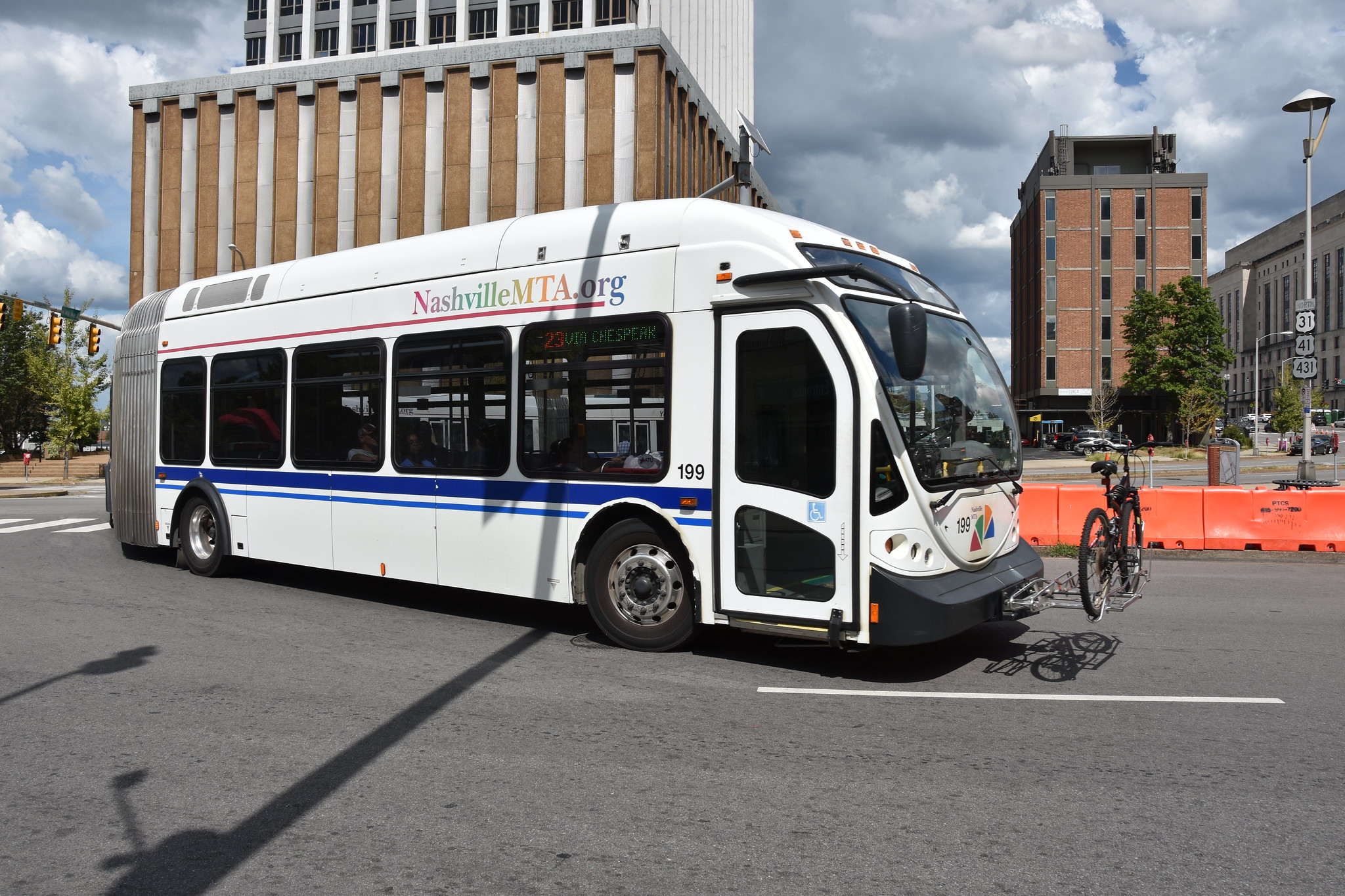Music City could use a transit tune-up — and a new transit center could be a key step forward.
Nashville’s civic leaders had hoped to lure more Tennesseans out of their cars and get them zipping across downtown, by building 26 miles of light rail lines and eight new bus lanes with a $5.4 billion transit plan that would have modernized the city.
But the city couldn’t get out of the rail yard. Last year, Davidson County voters summarily rejected a referendum on the plan by a 2-to-1 margin, thanks to a Koch Brothers-funded campaign against the tax increases that would have funded the proposal. Then, too, an ill-timed sex scandal brought down Mayor Meghan Barry, the transit package’s strongest supporter.
Undeterred by the results, Nashville officials are pushing ahead with similarly ambitious measures to break the city of its car dependency. This time, however, they’re getting someone else to help pay the bill — the feds.
“Just because the referendum failed, it doesn’t mean people are going to stop moving here or that development will stop,” said Nashville Metropolitan Transportation Authority spokeswoman Amanda Clelland. “So we are working to meet the subsequent demand for more mobility options in Nashville where and when we can, but that work must now be through projects within our means and at a much slower rate of progress than if we had the dedicated funding available that last year’s transit plan would have provided.”
One of those projects is a new transit hub in North Nashville that is part of nMotion, the 25-year transportation strategic plan Middle Tennessee adopted in September 2016. The Nashville MTA, recently rebranded as WeGo Transit, requested $18 million from the federal government for the site, according to the Nashville Business Journal.
Once completed, the enclosed station would have up to four open-air bus bays with a climate-controlled passenger-waiting area, cyclist amenities and facilities conveying real-time locations of incoming buses, according to the MTA. Three bus routes now provide service through the location but the hub could provide connections for up to three more routes, including rapid bus services.
And if electric scooters are still around by the time the hub opens — they were tentatively banned, with a cap for now on the the number of devices in use in the coming months — there may be a place to leave them.
The transit hub will almost certainly boost mobility in a neighborhood where nearly 22 percent of residents live in a household without a motor vehicle. Some two-thirds of North Nashville's 28,000 people are African-American and the median income in 2016 was $33,676, 44 percent lower than the median income in the state.
The site lies in the Nashville Promise Zone, where the poverty rate is 38 percent and the unemployment rate is 16 percent, which the federal Department of Housing and Urban Development designated in order to boost economic activity and job growth.
Nashville officials also hope that the hub will attract developers seeking to build new homes and businesses nearby, as well as improve access to the booming city's job opportunities, health care and other services for local residents.
Yet the environment for expanding transit in Tennessee is challenging. Plans for the North Nashville hub were disclosed as the Nashville MTA announced it would eliminate eight bus lines, reduce hours by 7 percent, and raise fares from $1.70 to $2 amid an $8.7 million budget shortfall.
Passengers told Nashville Public Radio they didn't understand why service was being cut in a growing city. After the public outcry, the MTA said it will restore some hours and replace two free circulators with a shuttle bus. Music City's transit future remains on key, MTA officials insist.
"Regardless of what happened with last year’s efforts, we must work to identify strategic opportunities for improving service for those who rely on it now and in the future to create a more sustainable, regional transportation network," Clelland said.






